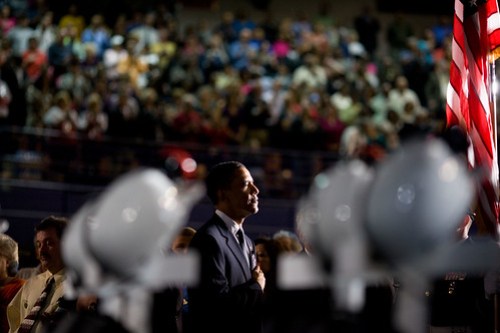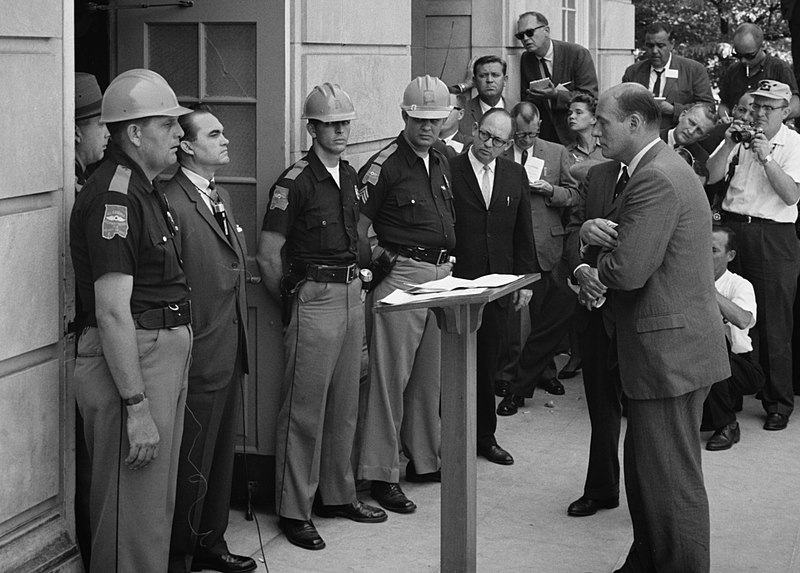
[reddit-me]My normal tack — when seeing a political cartoon like this that is so clearly off-base — is to “Fact-Check” it.
For example, the cartoon might lead you to believe that there was no unemployment compensation in 1950 — but unemployment compensation began in in 1935.
It’s not clear under what program the rich banker is paying for the unhygienic poor man’s mortgage either now or then. Federal housing policy offers tax subsidies to anyone paying a mortgage — which means the man on the right probably receives a bigger subsidy.
The health care point is likewise odd. In the 1950s, there was no Medicaid for the very poor. But everyone who received health insurance from their employer received a tax subsidy [pdf] both then and now.
In terms of subsidizing car ownership — federal and state policies began encouraging car ownership in the 1950s — from zoning laws requiring large amounts of parking to bailouts given to the auto industry to the construction of the federal highway system. The artificially low price of gasoline is another subsidy — as the cost of pollution and of a foreign policy of ensuring stability in the Middle East is borne by the public at large and not factored into the price. As everyone pays for pollution cleanup and foreign policy, this is a redistribution of wealth from those who minimize their use of gas to those who use more than the average. However, the complaint of cartoonist seems to be a tax subsidy given to those who purchase hybrid cars that use less gasoline. Which — though significantly less than the various other subsidies — is apparently the real obscenity.
And of course, the biggest thing the cartoonist is missing between the man on the right in 1950 and the man on the right in 2010: In 1950, the top marginal tax rate was 91%. In 2010, it was 35%. And that 35% doesn’t include all of the tax subsidies that surely would be used to lower the rich man’s tax rate — from tax subsidies for his employer-provided health insurance to any interest on mortgages or student loans or the myriad of other exemptions someone with a good accountant can find. And of course any profits from investments would be taxed at a lower rate– of 15%. Which is why today, the billionaire Warren Buffett pays a lower percentage of his income in taxes than does his secretary.
All of this makes the cartoon all the more revealing — not of the facts, which it does not reflect — but of right-wing mythology. Why does the cartoonist choose 1950 — rather than a time such when his points would have been true such as 1920 or 1890? The answer is simply that no one wants to go back those eras. Those were periods of economic growth, but inherently unstable times — an instability created by the enormous inequality between the top-most and the bottom-most parts of society. Those periods of history are remembered for the top and the bottom. The 1950s though was the era of the great middle class — robust, strong, stable. In the contemporary conservative mythology, the era personifies the American values of family and hard work. Much of the conservative intelligensia’s opposition to the Civil Rights Movement, the anti-war movement, the sexual revolution, the feminist movement, and the gay rights movement of the 1960s and 1970s came because they saw these movements as a threat to the stability of this status quo.
But the right wing was supported by forces equally opposed to the status quo — who sought a change every bit as dramatic as the radicals of the 1960s sought. Rather than free love, they sought free trade and deregulation. Rather than rights for gays and women, they sought favors for the financial industry. Rather than civil rights for people, they sought corporate rights to influence the political process. Rather than the naive dream of destroying bigotry, they sought the more practical dream of destroying the labor unions.
Since these twin political revolutions, the stability and the strong middle class of the 1950s are remembered with fondness — by mythologists of both the left and right. The conservative argument used to be that radicalism of Civil Rights for women, blacks, gays, and other minorities was what caused the unraveling of this mythological utopia. It has now evolved to blaming the government for redistributing too much to the poor and holding back business with taxes and regulation. The only problem with this story is that the past 60 years have seen a government retreat — with regulations being repealed and failing to keep up with changing times, with taxes having been more than halved, with the rich getting more and more of the wealth and power in the country and the poor less and less.
Which is how you can get a political cartoon such as this — harking back to a flatly false view of an era lost that never was.




